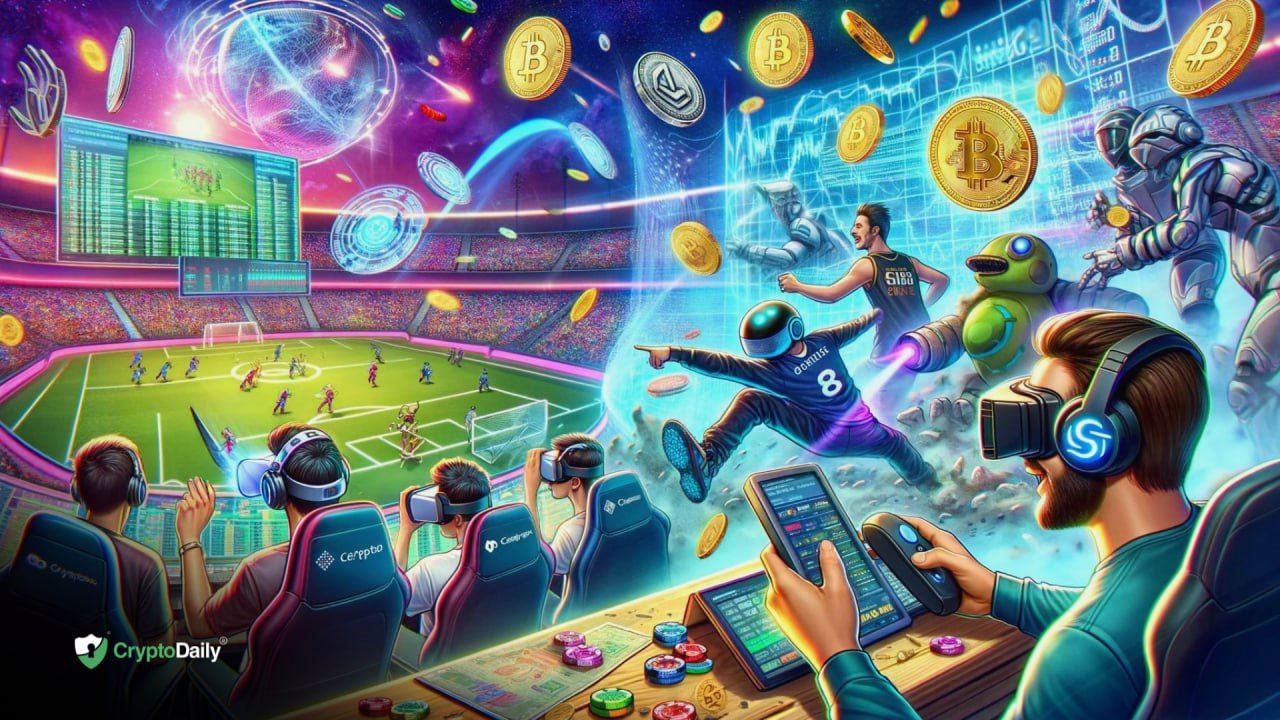The Future of Cryptocurrencies in Gaming Industries

- The Rise of In-Game Cryptocurrencies
- Blockchain Technology Revolutionizing Gaming Transactions
- Cryptocurrency Integration in Virtual Economies
- Challenges and Opportunities for Cryptocurrencies in Gaming
- The Potential of NFTs in Gaming
- Regulatory Considerations for Cryptocurrency Adoption in Gaming
The Rise of In-Game Cryptocurrencies
One of the most exciting developments in the gaming industry is the rise of in-game cryptocurrencies. These digital currencies are revolutionizing the way players interact with games, offering new opportunities for earning and spending virtual assets.
With in-game cryptocurrencies, players can buy, sell, and trade digital assets within the game environment. This opens up a whole new world of possibilities for gamers, allowing them to monetize their gaming experience in ways that were previously impossible.
Game developers are also benefiting from the rise of in-game cryptocurrencies. By integrating blockchain technology into their games, developers can create new revenue streams and enhance the overall gaming experience for players.
Overall, the future of cryptocurrencies in the gaming industry looks bright. As more games adopt in-game cryptocurrencies, players can expect to see even more opportunities for earning and spending virtual assets in their favorite games.
Blockchain Technology Revolutionizing Gaming Transactions
Blockchain technology is revolutionizing the way transactions are conducted in the gaming industry. By utilizing decentralized ledgers, blockchain ensures transparency and security in all gaming transactions. This technology allows for faster and more efficient payments, eliminating the need for intermediaries and reducing transaction costs.
One of the key benefits of blockchain in gaming transactions is the ability to verify the authenticity of in-game assets. This means that players can truly own their digital assets and transfer them seamlessly between games or platforms. Additionally, blockchain technology enables the creation of unique, non-fungible tokens (NFTs) that represent one-of-a-kind items in games.
Furthermore, blockchain technology provides a solution to the issue of fraud and cheating in online gaming. By recording all transactions on a secure and immutable ledger, blockchain ensures that all gaming activities are fair and transparent. This not only benefits players but also game developers and publishers who can build trust with their user base.
Cryptocurrency Integration in Virtual Economies
Cryptocurrency integration in virtual economies is becoming increasingly prevalent in the gaming industry. This trend is driven by the desire to create more immersive and engaging gaming experiences for players. By incorporating cryptocurrencies into virtual economies, game developers can offer new ways for players to interact with in-game assets and currencies.
One of the key benefits of cryptocurrency integration in virtual economies is the ability to facilitate secure and transparent transactions. Cryptocurrencies use blockchain technology, which provides a decentralized and tamper-proof ledger of all transactions. This can help prevent fraud and ensure that in-game assets retain their value.
Furthermore, cryptocurrency integration can also open up new revenue streams for game developers. By allowing players to purchase in-game items or currencies using cryptocurrencies, developers can tap into a global market of cryptocurrency users. This can help increase player engagement and drive additional revenue for game developers.
Overall, the integration of cryptocurrencies in virtual economies represents an exciting opportunity for the gaming industry. By leveraging the security and transparency of blockchain technology, game developers can create more immersive and engaging gaming experiences for players while also unlocking new revenue streams. As cryptocurrencies continue to gain mainstream acceptance, we can expect to see even greater integration of cryptocurrencies in virtual economies in the future.
Challenges and Opportunities for Cryptocurrencies in Gaming
One of the main challenges facing cryptocurrencies in the gaming industry is the lack of widespread adoption and understanding among gamers. Many players are still unfamiliar with how cryptocurrencies work and may be hesitant to use them in their gaming experiences. However, this presents an opportunity for game developers to educate their audience and integrate cryptocurrencies in a way that is user-friendly and appealing.
Another challenge is the volatility of cryptocurrency prices, which can make it difficult for gamers to predict the value of their digital assets. This uncertainty can deter some players from investing in cryptocurrencies for in-game purchases. To address this issue, developers can explore stablecoin options or implement mechanisms to mitigate price fluctuations.
On the other hand, cryptocurrencies offer exciting opportunities for the gaming industry. They can provide a secure and decentralized way for players to buy, sell, and trade in-game assets. This can create new revenue streams for developers and empower players to truly own their digital belongings. Additionally, cryptocurrencies can enable cross-platform compatibility and facilitate seamless transactions between players from different parts of the world.
The Potential of NFTs in Gaming
The potential of Non-Fungible Tokens (NFTs) in the gaming industry is immense. NFTs have the ability to revolutionize the way in-game assets are bought, sold, and traded. By leveraging blockchain technology, NFTs provide players with true ownership of their digital assets, allowing them to transfer or sell them outside of the game environment.
One of the key advantages of NFTs in gaming is the concept of scarcity. Each NFT is unique and cannot be replicated, making them highly sought after by collectors and gamers alike. This scarcity can drive up the value of in-game items, creating a new market for rare and exclusive assets.
Furthermore, NFTs can also be used to create verifiable digital identities for players, ensuring that their achievements and items are secure and cannot be tampered with. This can help prevent fraud and cheating in online games, creating a more fair and transparent gaming environment.
Overall, the potential of NFTs in gaming is vast, offering new opportunities for players, developers, and investors alike. As the technology continues to evolve, we can expect to see even more innovative use cases for NFTs in the gaming industry.
Regulatory Considerations for Cryptocurrency Adoption in Gaming
When considering the adoption of cryptocurrencies in the gaming industry, it is crucial to take into account the regulatory landscape that surrounds these digital assets. Governments around the world are still in the process of developing clear guidelines and regulations for cryptocurrencies, which can have a significant impact on their use in gaming.
One of the main concerns for regulators is the potential for cryptocurrencies to be used for illegal activities such as money laundering and fraud. As a result, many countries have implemented strict Know Your Customer (KYC) and Anti-Money Laundering (AML) requirements for cryptocurrency transactions. Gaming companies looking to incorporate cryptocurrencies into their platforms must ensure that they are in compliance with these regulations to avoid legal issues.
Another regulatory consideration for cryptocurrency adoption in gaming is the issue of consumer protection. Cryptocurrencies are highly volatile assets, and consumers who are not familiar with the market may be at risk of losing money. Regulators may require gaming companies to provide clear disclosures about the risks associated with using cryptocurrencies and to implement measures to protect consumers from financial harm.
Overall, while the use of cryptocurrencies in gaming has the potential to revolutionize the industry, it is essential for companies to navigate the complex regulatory environment carefully. By staying informed about the latest regulations and working closely with regulators, gaming companies can ensure that they are able to take advantage of the benefits of cryptocurrencies while remaining in compliance with the law.





